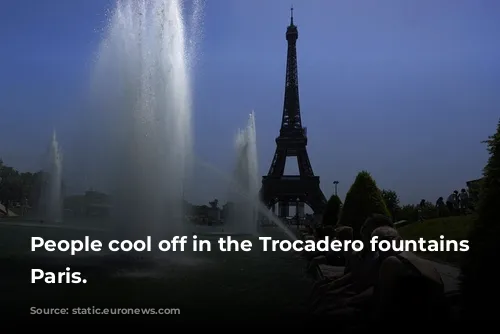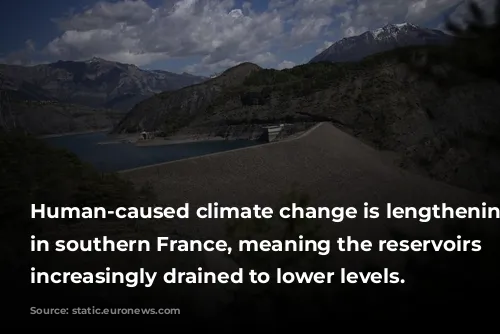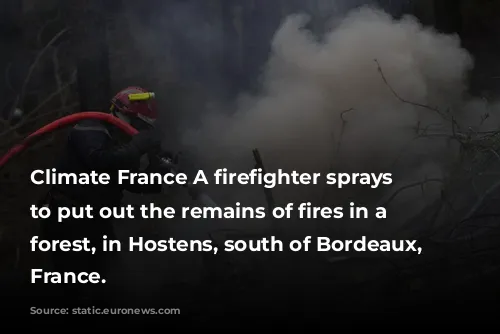Get ready to see how climate change is already impacting France’s diverse regions. A new report from environmental organizations is painting a stark picture of the climate crisis in France, highlighting the specific threats facing each of its 18 regions.
This report acts as a roadmap for local authorities to take action and accelerate the green transition.

Impacts Already Felt Across France
The report reveals that all regions are experiencing the consequences of climate change, but each faces unique vulnerabilities.
Drought is a growing concern across France, with projections indicating a potential halving of the Loire River’s flow in the coming years. This could lead to escalating tensions as households, agriculture, and industry compete for dwindling water resources.
The report delves into the specific threats faced by each region.
Nouvelle-Aquitaine and the Pyrenees: Facing the Drought
Nouvelle-Aquitaine, home to diverse environments from forests to coastlines and mountains, is particularly vulnerable to drought. The region has witnessed a decline in rainfall and rising temperatures since 1950, culminating in record-breaking drought episodes in recent years.
This dry spell has far-reaching consequences beyond water scarcity. It increases the risk of wildfires in forested areas, degrades soil, contributing to flooding in other regions, and puts a strain on already stressed agricultural resources.
Paris: Heat Waves Pose a Growing Threat
Cities like Paris are especially susceptible to extreme heat. While France has experienced an average warming of 1.9°C, this could surpass 4°C by 2100 if current climate policies remain unchanged.
The Ile-de-France region could face 30 days of heatwaves annually by 2050, with temperatures potentially reaching 50°C. Urbanization exacerbates this threat, as concrete and metal materials absorb and retain heat, creating the “urban heat island effect”.
This extreme heat has deadly consequences, with Paris identified as one of the European cities with the highest risk of heat-related deaths.
Hauts-de-France Battles Extreme Flooding
In contrast to the south, the Hauts-de-France region is grappling with the growing threat of extreme flooding. Six out of ten municipalities, home to 2.2 million people, are at risk.
The region’s vulnerability stems from soil modification due to urbanization, making it susceptible to heavy rainfall events. The report highlights a significant increase in rainfall intensity over shorter periods, leading to droughts in summer and extreme flooding in winter.
Brittany Faces the Rising Tide
Brittany, with its extensive coastline, faces the pressing threat of rising sea levels. The region has experienced a 20cm rise in sea levels since 1900, with the rate accelerating.
This rise poses a significant threat of coastal erosion, particularly in Saint-Malo, where 25,000 inhabitants live below sea level. The report underscores the urgent need for action to mitigate the effects of rising sea levels, emphasizing the importance of limiting global warming to 2°C.
A Call to Action: Funding the Green Transition
The report’s authors emphasize the need for immediate action to address the climate crisis. They highlight the urgent need to cut greenhouse gas emissions, pointing out that the scenarios outlined in the report represent a “worst-case” scenario.
They also emphasize the importance of bolstering funding for local authorities to adapt to the climate crisis. Currently, local authorities invest around €8.4 billion annually for ecological transition efforts, but the report argues that this needs to more than double to €19 billion per year.
Despite the urgency of the situation, the Green Transition Fund, designed to finance local ecological efforts, has been cut twice in less than a year. This underscores the need for greater commitment from the government to support local authorities in their fight against climate change.
The report stands as a powerful call to action, urging both local authorities and the government to take concrete steps to address the climate crisis and ensure a sustainable future for France.


